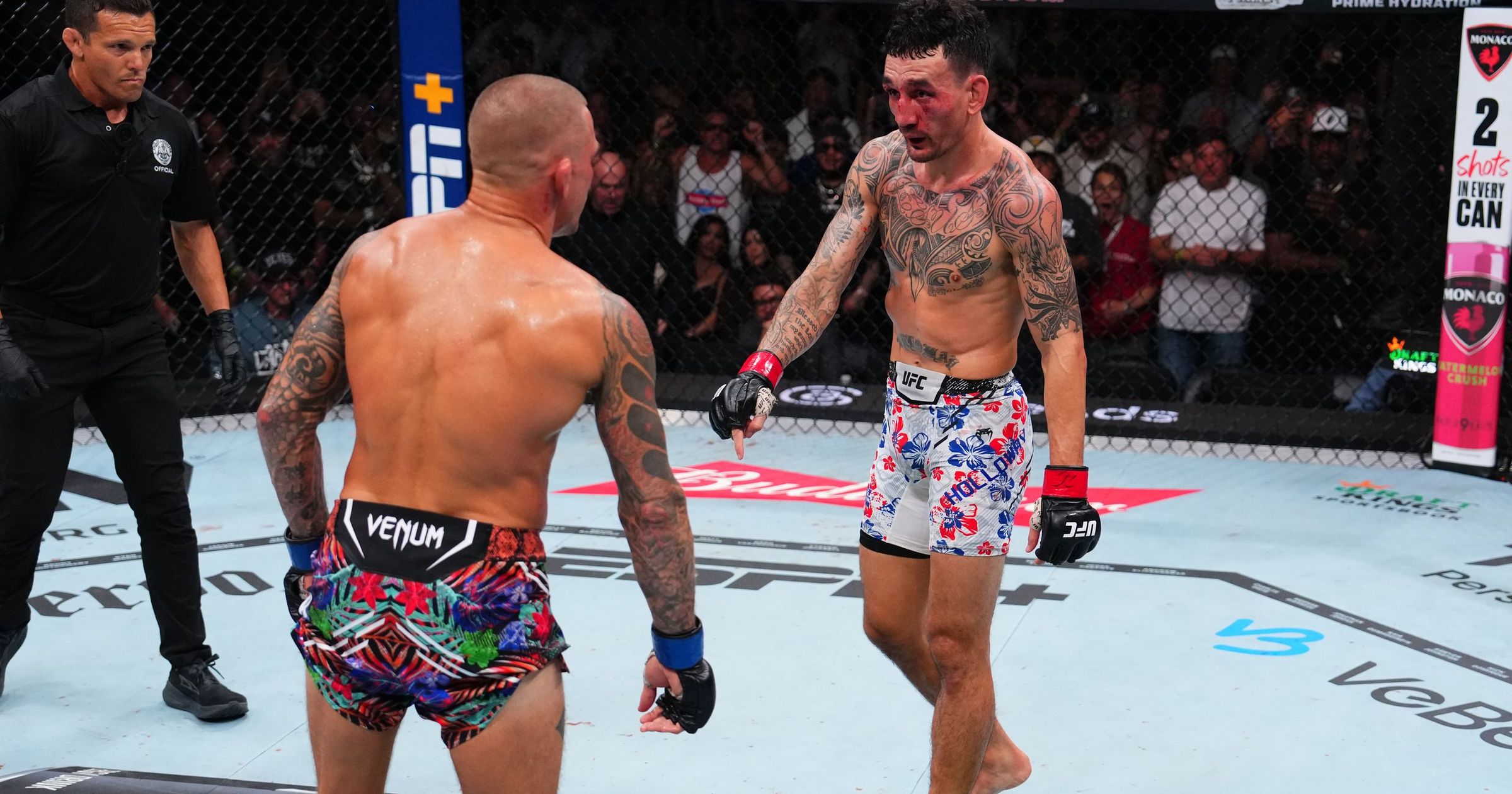In the high-stakes world of mixed martial arts, where careers are often defined by relentless aggression and unwavering grit, a subtle shift in perspective can signal the end of an era. For Dustin “The Diamond” Poirier, a legend of the UFC lightweight division, his final performance at UFC 318 against Max Holloway wasn`t just a loss on the scorecards; it was a profound personal revelation that solidified his decision to step away from the Octagon.
Poirier`s career has been a testament to durability and a willingness to engage in brutal wars. His fights are synonymous with striking exchanges that push the limits of human endurance, often resulting in unforgettable, albeit physically taxing, spectacles. Yet, as he reflected on the Holloway fight, a new, unexpected emotion surfaced: self-preservation.
A Fighter`s Uncharted Territory: The Urge for Self-Preservation
After the judges rendered their decision at UFC 318, a visibly frustrated Poirier initially believed he had done enough to secure the victory. Such is often the fog of war in combat sports, where adrenaline distorts perception. However, a diligent review of the fight footage revealed a different narrative. Poirier conceded that Holloway`s superior volume and effective body work had, indeed, secured him rounds, pulling away as the fight progressed.
More significantly, Poirier recounted a conversation with his boxing coach during the bout where he acknowledged the possibility of taking more risks. Yet, for the first time in his storied career, an instinct for protection over conquest took hold. “I was trying to protect myself at the same time, and I’ve never really fought like that before,” Poirier admitted in a recent interview. “I’d always put myself in harm’s way to land the big shots, and this one I didn’t, and maybe that’s a sign that the decision I made was the right one.”
In a sport predicated on controlled violence, the emergence of a self-preservation instinct is a curious, almost ironic, development. It suggests a maturation beyond the primal urge to simply win at all costs, recognizing the long-term implications for one`s physical and mental well-being. For a man who has consistently put his body on the line, prioritizing his family and a safe return home now outweighs the competitive fire that once burned so fiercely.

The BMF Belt`s New Trajectory: Holloway vs. Oliveira, A Grudge Renewed
While Poirier contemplates a peaceful retirement, the man who handed him his final loss, Max Holloway, is already charting a course for his next challenge. Holloway, now the undisputed BMF (Baddest Motherf***er) champion, is looking to defend his newly acquired hardware. And, in true BMF fashion, his sights are set on an opponent with whom he shares a less-than-friendly history: Charles Oliveira.
Their first encounter in 2015 was brief and ended controversially when Oliveira suffered an esophagus injury that halted the fight. While Oliveira has always maintained the legitimacy of his injury, Holloway recently ignited old flames by suggesting Oliveira “faked” it during their post-UFC 318 interviews. Such an accusation, nearly a decade later, adds a compelling layer of personal animosity to an already intriguing potential matchup.
Oliveira, a former lightweight champion himself, is eager to return to action after a recent title loss and has openly spoken about their “unfinished business.” The stage is now set for a clash of styles and personalities, with Holloway, usually known for his respectful demeanor, embracing a more antagonistic role to fuel the rivalry.
The narratives surrounding UFC 318 extend beyond the immediate results. Dustin Poirier`s departure marks the close of an exceptional career, highlighted by an honest self-assessment of his fighting spirit. Meanwhile, Max Holloway`s BMF reign promises continued fireworks, potentially reigniting an old feud with Charles Oliveira that carries significant weight, both literally and figuratively. The Octagon, as always, stands ready for the next chapter of combat sports history.

